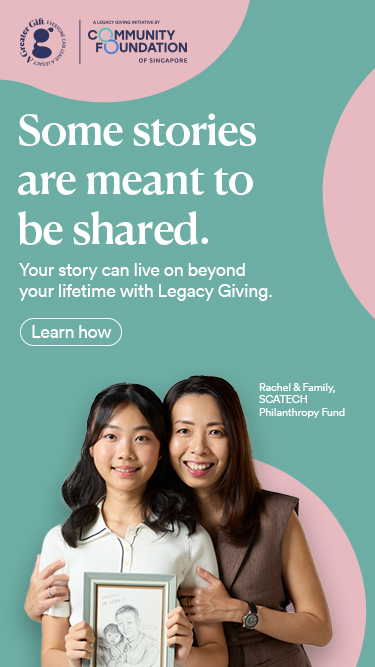Singapore Tatler: Kith and Kin


The family behind Naumi Hotels and Rang Mahal Restaurants, Surya, Ritu and Gaurang Jhunjhnuwala, shares how its late patriarch Shyam Sundar Jhunjhnuwala’s spirit of entrepreneurship and giving lives on through the generations with the S S Jhunjhuwala Charity Fund established with the Community Foundation of Singapore (CFS). With philanthropic advice from CFS, the family continues its patriarch’s legacies and focuses on education, welfare initiatives, as well as health-related issues for underprivileged women and children in Singapore. Read more.
Courtesy of Singapore Tatler, February 2019
The family behind Naumi Hotels and Rang Mahal Restaurants, Surya, Ritu and Gaurang Jhunjhnuwala, shares how its late patriarch Shyam Sundar Jhunjhnuwala’s spirit of entrepreneurship and giving lives on through the generations with the S S Jhunjhuwala Charity Fund established with the Community Foundation of Singapore (CFS). With philanthropic advice from CFS, the family continues its patriarch’s legacies and focuses on education, welfare initiatives, as well as health-related issues for underprivileged women and children in Singapore. Read more.
Courtesy of Singapore Tatler, February 2019
- Related Topics For You: ACCESSING QUALITY EDUCATION, CHARITY STORIES, CHILDREN, DONOR STORIES, EDUCATION, HEALTH, INCLUSIVITY & INTEGRATION, NEWS, PARTNERSHIP STORIES, PROMOTING HEALTHCARE, YOUTH





